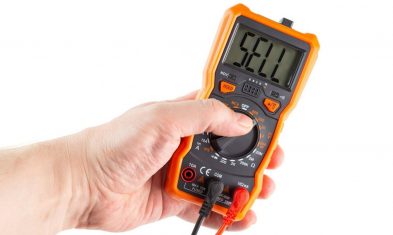These 11 easy steps will reveal how to start an electrical business and guide you down the path to success.
At first, starting an electrical business might seem like a daunting task. However, even with all of the natural uncertainty of building a business from scratch, the steps in this article will reveal a simple process for you to follow with as little stress as possible.
Let’s explore the basic fundamentals of how to start an electrical business:
- Use the best marketing strategies
- Choose the right insurance for the business
- Competitively price electrical services for maximum profit
- Consistently meet with a Certified Public Accountant to stay on target
- Create a detailed business plan to evaluate your strategy as a whole
- Invest in the best electrician software to help streamline everyday operations
Essential business strategies like the ones listed above are what develop the secret sauce to establishing a prosperous business with consistent, sustainable growth. Take advantage of the pro tips in this article to minimize worries and mitigate risk.
1. Choose Electrical Service Offerings
Before exploring how to start an electrical business, it’s crucial to have several years of field experience.
Before getting started, at a minimum, you should be a journeyman, or preferably a master electrician. The prior experience you’ve gained as an electrician will help in thinking through your business model.
Before choosing the electrical services to offer, consider the target market, and ask yourself:
- Will you serve commercial, residential, or both types of customers?
- Are you offering services for new or existing constructions?
- What services do your customers need the most?
- Which services are your specialty?
Many businesses start with a few basic services for specific markets (e.g. residential homes) and then grow from there. This saves them from buying exorbitant amounts of tools and equipment all at once.
Even though you may want to serve both residential and commercial customers in the beginning, different equipment and licenses are often required for commercial accounts. For this reason, many businesses start in the residential space first before expanding into the commercial space.
2. Get Certified and Licensed Prior to Starting
As you’re likely already aware, both you AND your team need to be certified in order to complete jobs in the field. Depending on the type of electrical work being performed, you’ll need to look into your state’s requirements to cover all bases.
Also, keep in mind, in the U.S., many states have licensing requirements for starting an electrical business. Licenses and certifications are issued at the state level. For this reason, it’s important to stay up-to-date with local laws and regulations.
As a refresher, here are a few different types of electrician specializations:
- Industrial
- Commercial
- Residential
- Maintenance
- Automotive
3. Decide on the Best Electrical Business Name
Even though the electrical business name is important, it doesn’t have to be overly thought out or complex to be a great business name.
Take a look at a few simple elements to keep in mind when choosing the right name:
- Make it simple
- Choose two to three words related to offered services
- See if localized domains are available
- E.g. dallaseletricalservices.com
Keep in mind, it’s unnecessary to include:
- Excessive details
- [Your Name’s] Electrical Services
- A cute or clever play on words or pun
- Save it for your slogan
4. Consult With a Trusted CPA
Consulting with a CPA (i.e. Certified Public Accountant) is downright necessary to ensure a successful, financially-sound business.
Prior to starting the typical business ventures, establish factors such as:
- Goals
- Pricing
- Branding
- Budgeting
- Business plan
- Bank accounts
CPAs evaluate all assets to determine how to launch the business, weigh costs, decide if a loan is necessary, determine when to start full-time, among other factors difficult to see at the outset. Additionally, CPAs will flag any financial obligations you haven’t thought about yet.
The best CPAs clear the path to success and mitigate potential risks, which might interfere. Before registering your electrical business, ALWAYS meet with a CPA first.
5. Get the Electrical Business Registered
After speaking with a trusted CPA, you’re ready to register the business. Fortunately, it’s relatively inexpensive to register businesses with your state. Plus, some states only require a little paperwork to complete registration.
Since becoming a registered business is easy, mitigates legal implications, and secures your personal assets, there’s no excuse to skip this crucial step in becoming a legal business!
In addition, registering your electrical business as an S Corp (i.e. S Corporation) or LLC (i.e. Limited Liability Company) protects personal assets in the unfortunate event of getting sued or receiving a dispute. Plus, it helps with filing taxes.
NEVER WAIT to register your electrical business. It needs to be done before getting started.
S Corp vs. LLC
Due to tax purposes, the IRS classifies businesses as sole proprietorships, partnerships, C corporations or S corporations. Since the LLC doesn’t have an IRS classification, it gets taxed as another type of business.
In short, registering as a sole proprietorships LLC requires you to pay self-employment taxes (e.g. social security and Medicaid). Which means, the entire business profit is taxed for that year.
As a result, many businesses choose to register as an S Corp. By registering as an S Corp or LLC, you (the business owner) can get a set salary. In other words, your salary will get a self-employment tax – instead of your total profits paying for it.
As always, consult with an excellent CPA before deciding how to register.
6. Create an Electrical Business Plan
After meeting with a CPA and registering the business, it’s time to create a business plan with the financial information you’ve gathered so far.
Both new AND established electrical businesses alike should have an official business plan. In fact, almost anyone providing financing to the business (e.g. loans, grants, investors, etc.) will ask to review it.
However, even if you don’t seek financial assistance, business plans keep everyone within the company focused and aligned on the right goals and vision. In addition, a great business plan helps with staying organized as well as preparing for unexpected events.
Take a look at how a basic outline of your electrical business plan should appear:
- Cover Page
- Executive Summary
- Business Overview
- Electrical Services
- Market Analysis Summary
- Business Strategy
- Implementation Summary
- Management Summary
- Financial Plan
Remember, your electrical business plan is one of the most essential steps to becoming successful. The best ones are detailed, minimize stress, and set the business up to thrive. In turn, a great business plan takes time to create.
Though, it’s important to regularly update the plan with new contact information, financial updates, and more. Which means, it’s not a one-and-done document. Typically, monthly financial revisions and complete annual revisions are performed.
Before finalizing the business plan, have your CPA review it to ensure everything looks great.
Plan your prices in a few minutes using this FREE electrical pricing calculator to increase profits now!
7. Establish a Business Bank Account
Unfortunately, many new start-ups make the mistake of using their personal bank account for the business. This is a huge mistake, which can produce some complications when getting audited or filing taxes.
By keeping personal and business finances separate with a business bank account, it’ll simplify things for your CPA and mitigate confusion and potentially prevent costly mistakes.
The best thing you can do for your business’ finances is to establish a business bank account early on. If you’re wondering how to set up a business bank account, your CPA and bank are the most valuable resources in this process.
8. Get Bonded and Insured Before Working
While adequate business insurance presents upfront costs, getting bonded and insured will protect the business from financial liabilities when inevitable mishaps occur on the job. Most states require this before issuing a contractor license, which is required before accepting any work from clients.
As a result, business insurance protects the business from going bankrupt if a customer tries to sue. Get the best insurance which reasonably fits within the budget. Though, there’s no one-size-fits-all insurance policy. Choose the best insurance policy that meets your business’ needs.
9. Start Marketing to Win Customers
Quickly win customers through marketing. Use your marketing budget to help to establish the business’ brand, build credibility and expand the public’s awareness of your services.
Here’s a look inside the top 10 marketing strategies for electrical businesses:
- Revamp or create a company website
- Freelancers can be a great resource for this
- Take advantage of email marketing
- Start PPC (i.e. Pay Per Click) marketing
- Discover how to leverage all reviews
- Explore content marketing
- Develop a video marketing strategy
- Actively use social media
- Place physical ads
- Use truck wraps to expand brand visibility
- Provide leave-behinds to receive fantastic referrals
By developing a marketing strategy as early as possible, you can increase brand awareness and win new customers fast.
Always remember, it’s crucial to build a website, and as the business grows, continually shift more focus onto SEO (i.e. search engine optimization). Create content on your website that prioritizes local industry keywords to improve your site’s rank in Google’s search results (E.g. “Dallas Electrician”). Ultimately, ranking higher in Google makes your company’s website more discoverable to leads.
Though, you don’t necessarily need a website to start your electrical business, it will help to quickly expand reach, build credibility and increase conversions. When you have space in the budget, consider hiring a freelance web developer. Meanwhile, Wix and Squarespace are simple, user-friendly website builders with easy-to-follow tutorials accessible to novices.
10. Begin the Electrician Hiring Process
After verifying the business plan with a CPA, you’ll likely already know if you need to hire another electrician to help you get started.
Now, let’s talk about the necessary steps in the electrician hiring process:
Conduct a Complete Background Check
Even if they’re a trusted referral, it’s vital to complete background checks on ALL employees before hiring.
After the ideal candidate has passed their phone screening and in-person interview, it’s time to conduct a complete background check. You’re looking for any potential liabilities or red flags they could present to the business if you should hire them.
For example, if the electrician has been caught stealing, then they’re probably not an adequate candidate for hire. Since they’ll be working in customers’ homes and offices and will operate expensive tools and equipment, both you and your clients need to be able to trust your team’s integrity.
Also, don’t forget to follow up with every candidate’s provided references – at least two recent professional and two personal references. This helps verify the information they’ve given you as well as provide insight about them as a potential employee.
If everything checks out, then it’s time to verify the candidate is legally ready to work – including any certifications or visas. Depending on the position being filled, make sure the candidate is willing to put in the time and effort into any training or additional credentials they may need to perform their job duties.
Obtain an EIN
In order to legally begin hiring employees, you’ll need to get an EIN (i.e. employer identification number) in the U.S. and a SIN (i.e. social insurance number) in Canada.
For those in the US, this is as simple as filling out an online application at IRS.gov. Likewise, if you’re in Canada, then there’s a similar process at Canada.ca.
Explore how to hire the best electricians for your business by downloading our FREE hiring guide!
11. Ignite Sustainable Growth With the Best Electrician Software
FieldEdge is the best electrician software to ignite long-term, sustainable growth. Plus, it’ll benefit your business EVEN MORE when using it from the start.
The best electrician software helps you to:
- Get paid faster
- Create instant estimates on-the-go
- Invoice clients with the touch of a button
- Create efficient routes to quickly dispatch electricians
- Access job history and customer information from anywhere
The #1 electrician software has the ultimate power to streamline your everyday business operations – allowing the business to grow even faster with all of the time and money saved. Plus, FieldEdge has helped THOUSANDS of businesses just like yours to become efficient, successful operations.
Explore how the best electrician software will transform your business growth. Book a demo of FieldEdge for free today!
How to Start an Electrical Business That’s Successful
In this article, we’ve discussed key components that lay the groundwork to starting a successful electrical business, including:
- Meeting with a CPA to discuss finances and liabilities
- Seeking outside specialist help when necessary
- Developing a strategic business plan
These actions will set you up for success as you explore how to start an electrical business.
Plus, if you want to maximize profits and optimize time as much as possible, then choose the best electrician software.
Follow these pro tips to help start an electrician business that thrives for many years to come!





